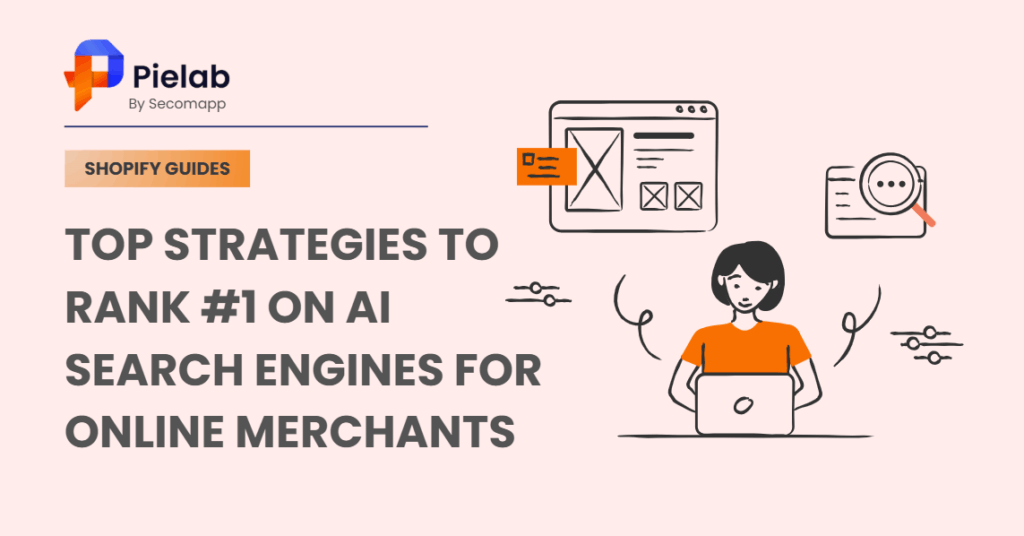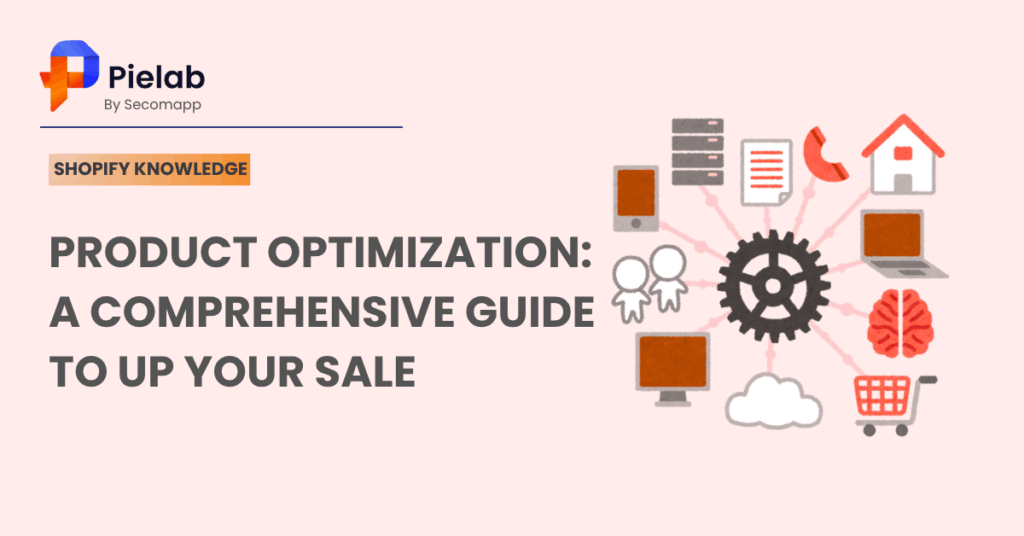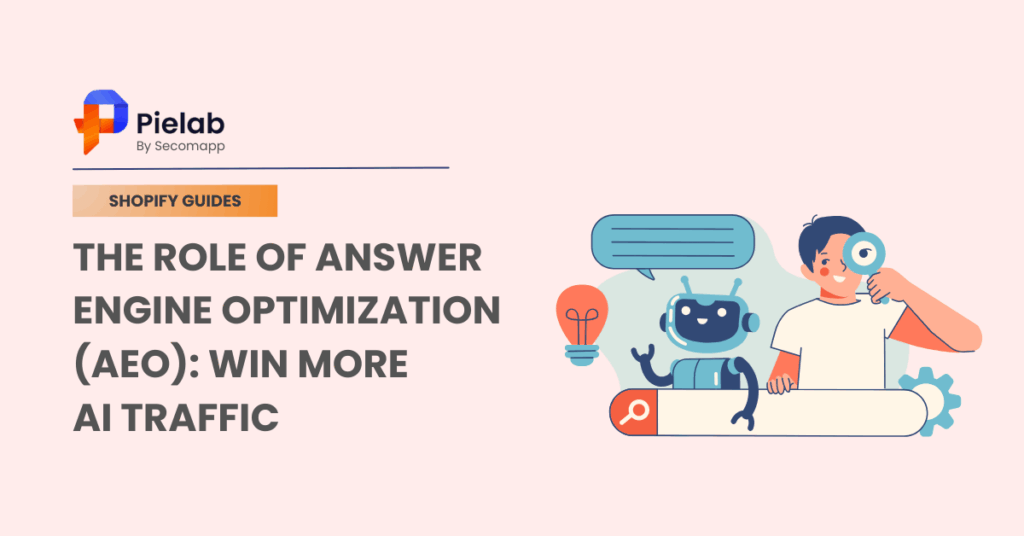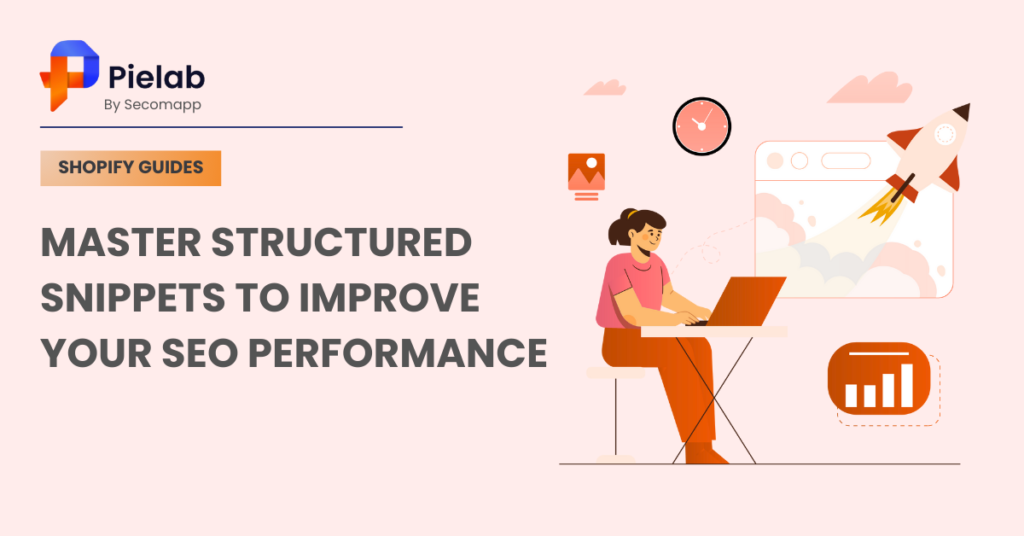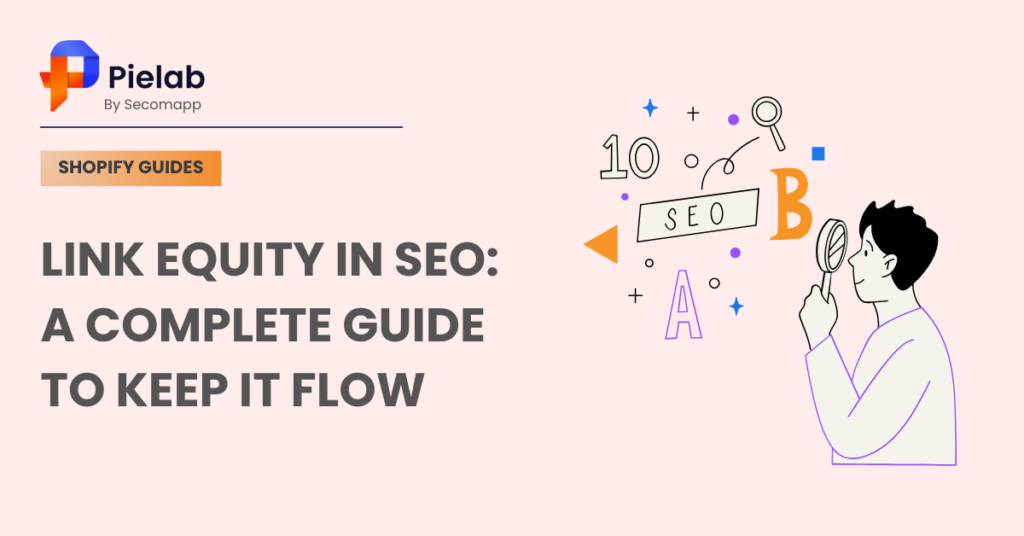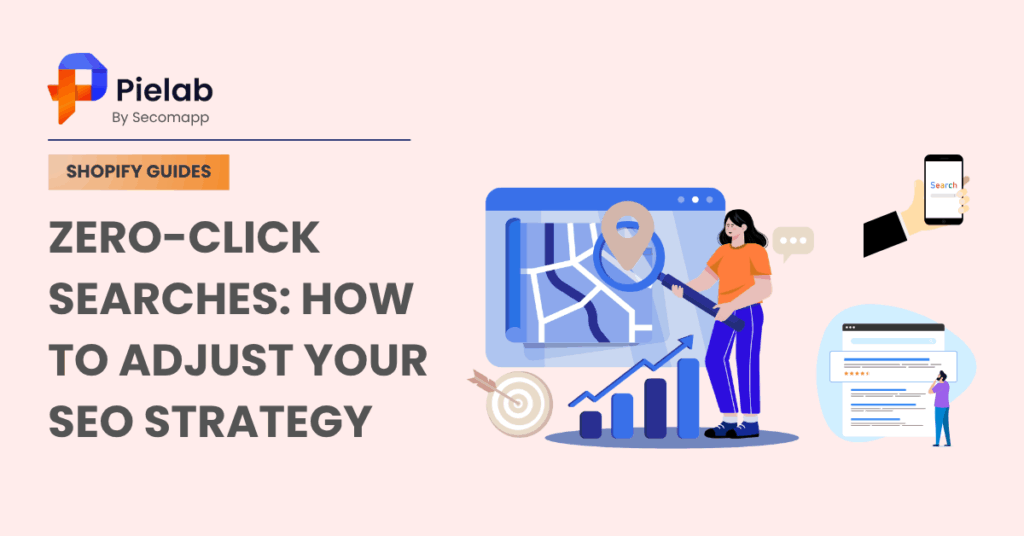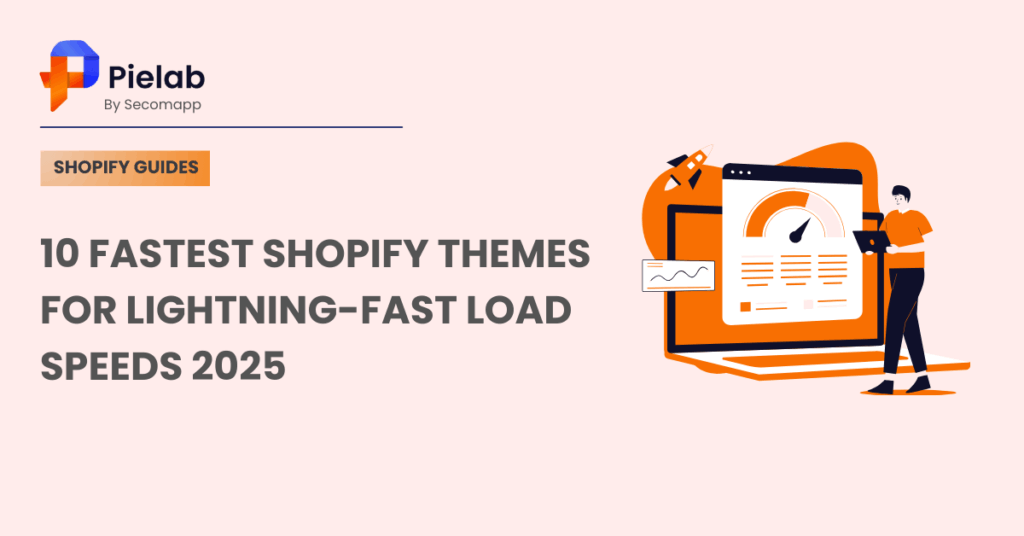Traditional SEO focused mainly on ranking in Google. But with the rise of AI search engines like ChatGPT Search, Perplexity, and Google’s AI Overviews, the approach needs to evolve. Success today means creating content that can be discovered across multiple platforms and formats, not just through keywords.
This article will share the top strategies to rank #1 on AI search engines and help your content stay visible in this new search landscape.
The Difference Between Traditional Search Engines and AI Search Engines

The digital landscape is evolving rapidly, and search engines are at the heart of this transformation. For online merchants, staying competitive means understanding how these two models differ.
Traditional Search Engines: Keyword And Link-Based Efficiency
Traditional search engines are built on algorithms that evaluate keywords, backlinks, and website authority to determine rankings. Their biggest strengths are speed and scale. Google alone handles more than 60,000 searches per second and has indexed over 50 billion web pages, giving users access to an enormous pool of information.
This system works best for straightforward, fact-based searches where users need a broad range of sources. The ranking factors—keywords, backlinks, site speed, mobile friendliness—provide a fairly predictable framework for SEO.
Yet, these engines show clear limitations. Keyword dependency means vague queries often lead to irrelevant results, forcing users to rephrase. They also lack deep contextual understanding: a search for “best shopify themes for speed” may surface generic theme lists instead of tailored recommendations. On top of that, the link-heavy results can overwhelm users, with studies showing 75% never click past page one.
AI Search Engines: Contextual, Conversational, And Adaptive
AI search engines take a different approach. Powered by natural language processing and machine learning, they focus on understanding user intent rather than just matching keywords. This allows them to handle complex, ambiguous, or conversational queries with greater accuracy. Instead of offering a list of links, AI can generate a direct, summarized answer—saving time and reducing friction.
Another strength is personalization. By analyzing user history and preferences, AI search can adapt results to individual needs. For example, an online merchant searching “how to promote shopify store” may get a contextual breakdown that includes email campaigns, social media ads, and SEO tactics, rather than a generic guide. AI engines also support interactive, follow-up questions, creating a conversational flow that traditional search engines cannot replicate.
Still, AI-powered search is not without challenges. Personalization relies on data, raising privacy concerns for users. These models also require huge computational resources, making them expensive to run and limiting accessibility. And while AI delivers impressive context, it can sometimes generate biased or inaccurate responses, requiring users to double-check important information.
Why AI Search Engine Matters In E-commerce Today
For online merchants, the shift toward AI search engines is more than just a trend—it’s a fundamental change in how customers discover and evaluate products. Instead of typing short keyword phrases into Google, shoppers are now asking natural, conversational questions like “What are the best Shopify themes for a fashion store?” or “Which ecommerce platforms for small businesses are fastest to set up?”
AI search engines don’t just provide a list of links—they generate synthesized answers, often highlighting a handful of trusted sources. This means that if your brand doesn’t appear in those curated results, you risk becoming invisible to potential buyers. According to recent consumer behavior studies, nearly 60% of users now prefer AI-driven search for complex buying decisions, because it feels more like consulting an expert than scanning multiple pages of links.
For online merchants, this shift has two major implications:
- Visibility depends on trustworthiness and clarity. AI models prioritize content that is authoritative, well-structured, and easy to summarize.
- Competition is narrowing. Instead of showing 10 blue links, AI may only feature 2–3 sources in its answer. Getting into that “shortlist” is crucial for driving traffic and conversions.
Smarter Search In Action: Practical AI Use Cases

AI-powered site search goes beyond speed—it focuses on relevance, adapting to the way real customers actually search.
Shoppers rarely search the same way. Some type full questions, others look by size, color, or features. Misspellings are common too. With AI, your ecommerce store can interpret all of these variations and still deliver the right results.
Here are four examples of how AI-driven search enhances shopping:
- Cleans up typos and messy inputs
Even if a user types “blu jacket womans,” AI automatically corrects the query and surfaces the right products, reducing friction in the buying journey. - Understands product-specific details
Whether it’s “slim fit jeans size 32” or “rose gold phone case,” AI leverages natural language processing and product data to match queries with accuracy. - Adapts to multiple languages
AI can process and translate multilingual searches, making it easier for international customers to navigate and discover items. - Interprets vague or contextual searches
Queries like “eco cleaning kit” or “third-gen tablet” are mapped to actual products through semantic search and machine learning, connecting intent with real inventory.
By reducing no-results pages and guiding shoppers to what they need, AI ensures smoother product discovery—whether visitors arrive through your homepage, a category page, or even a vague search query.
Top Strategies To Rank #1 On AI Search Engines

So, how can online merchants ensure their store and content stay visible in this new search era? Here are the top strategies:
1. Answer Questions with Clarity and Precision
Why it matters for AI search
AI search tools are built to deliver direct, conversational answers. When users ask full questions, content that responds clearly and concisely is more likely to be quoted in the generated response. The simpler and sharper your answer, the easier it is for AI to recognise and serve it.
How to implement it
- Use tools like Google’s People Also Ask or AnswerThePublic to identify common queries.
- Frame headings as real questions (e.g., “What is buyer intent data?”).
- Provide a one-paragraph answer first, then expand with more context.
- Apply schema markup to help AI identify your structure.
2. Format Content for Easy Scanning
Why it matters for AI search
Large language models scan for patterns. Structured formatting—like headings, bullets, and summaries—makes your content easier to parse and more likely to be selected. Readers also appreciate content that’s simple to skim, which lowers bounce rates and boosts engagement.
How to implement it
- Break content into short sections with clear H2s and H3s.
- Limit paragraphs to 2–3 sentences.
- Use lists, tables, or summary boxes to highlight key insights.
- Add a TL;DR at the top or bottom of long-form content.
3. Build Authority with Evidence
Why it matters for AI search
AI models prioritise content that sounds trustworthy. Evidence, stats, and authoritative links signal credibility. Without proof, your content risks being ignored in favour of better-sourced material.
How to implement it
- Back up claims with data, reports, or expert commentary.
- Link to original sources like studies or government sites.
- Avoid hedging phrases such as “maybe” or “we think.”
- Add case studies, benchmarks, or quotes from specialists.
4. Keep Content Fresh and Updated
Why it matters for AI search
Outdated content signals neglect. AI tools favour pages that reflect current knowledge, especially in fast-moving industries. Keeping content fresh helps reinforce your authority and ensures your content stays visible.
How to implement it
- Review key pages every 6–12 months.
- Update outdated stats, links, or product details.
- Add a “last updated” date to reassure both readers and crawlers.
- Even small edits, like replacing old examples or inserting a new quote, can signal freshness.
5. Match Search Intent, Not Just Keywords
Why it matters for AI search
AI doesn’t just look for words; it looks for meaning. If your content directly addresses why someone is searching—whether for definitions, comparisons, or instructions—it’s more likely to appear in summarised results.
How to implement it
- Study SERPs to understand what formats and topics rank.
- Group content by intent: informational, transactional, or navigational.
- Use “People Also Ask” questions as hints for related intent.
- Structure pages to cover different user goals in separate sections.
Future Outlook: Preparing For Hybrid Search
The future of search will not be purely AI-driven nor entirely traditional—it will be a hybrid model. Shoppers will still use Google for quick comparisons and broad research, but they’ll increasingly rely on AI assistants for deeper, context-rich answers.
In short, merchants who invest in both AI-driven SEO and traditional search optimization will have a competitive edge. The brands that adapt early will capture more attention, more trust, and ultimately, more sales in the evolving digital marketplace.


